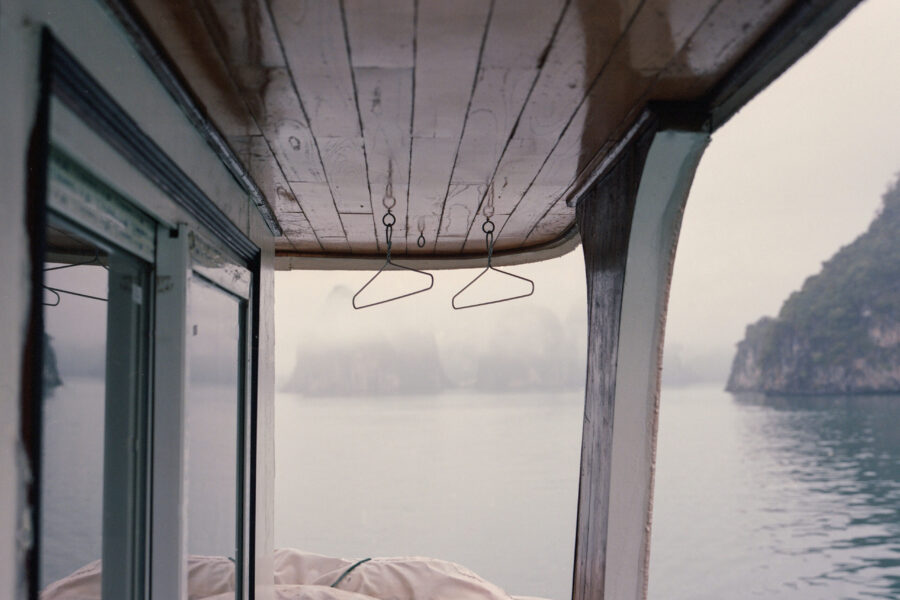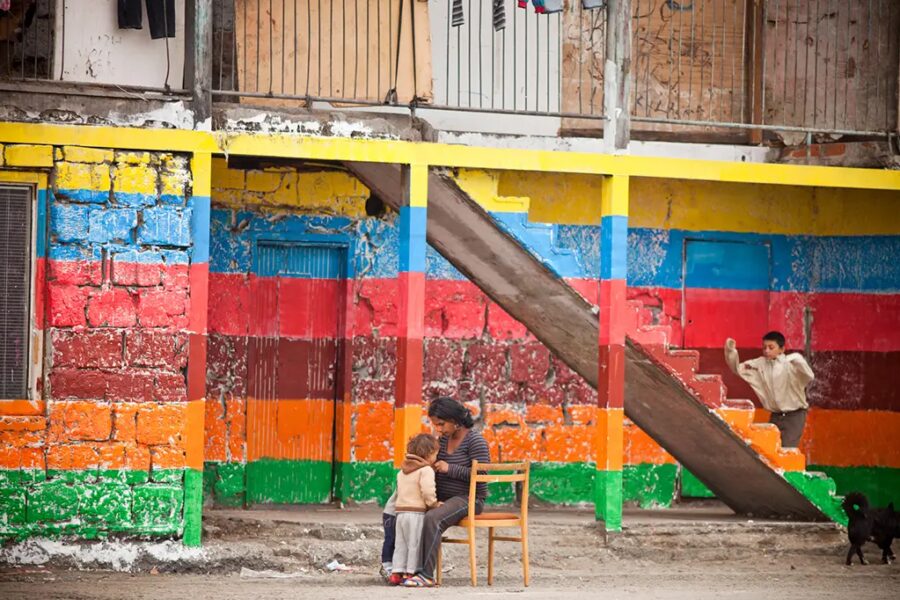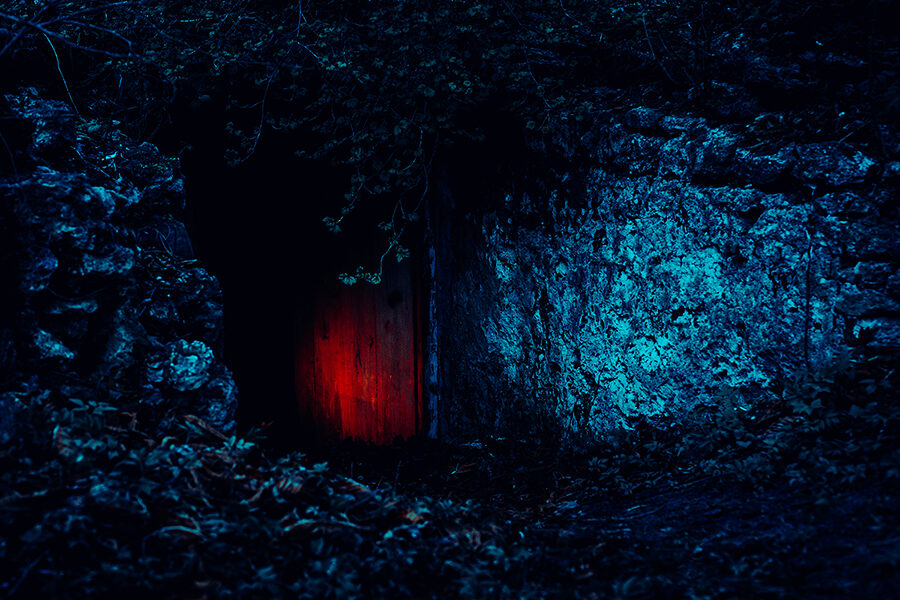
Farhad Babaei: A journey from a dictatorship to freedom
A writer’s monologue in four hours and forty-five minutes flight
For someone like me, who spent forty-six years limited to his homeland without ever journeying beyond its borders, stepping into a European country in middle age felt both like hovering above, and like a sweet dream. I never imagined a day when I could break free from the challenging and risky environment I faced as a writer in Iran, navigating threats and dangers enforced by the dictatorial regime of Iran. But I think that something like a miracle would have happened or, in other words, nature rewards when you least expect it.

In the early morning of October 1, 2023, I arrived on the European continent from the Middle East via an Austrian Airlines flight. The journey began at 2:40 a.m. and lasted until 5:55 a.m. When the Airbus A321 took off and rose through the darkness, I sank into my thoughts. I floated between imagination and dreams, trying to avoid thinking about the destiny waiting for me in a city named Bratislava.
The first time I heard this name, I imagined it could be a female name.
The way that it is pronounced, it conjures in my mind a tall stylish girl. I don’t know, maybe due to the first part of the word! Bra! it reminded me of female underclothes and in the following, that high phonetic and smooth sound -tislava. When I imagined all these, it created the character of a girl with an attractive voice.
Although, later, when I looked it up, I saw that the name’s real root came from a medieval Slavic ruler named „Brezalauspurc“, which gradually evolved into the name Bratislava.
Anyway, this could not change anything in my mind. As a writer, I preferred to keep it the way I imagined it in my mind.
My imagination has always served as a sanctuary for me. However, that night aboard the airplane, I attempted to mute it. As I gazed out the window, I encountered a darkness that mirrored the frozen state of my mind.
There were intermittent flickers of light on the ground, appearing and vanishing in the distance. I contemplated each passing minute, knowing that the aircraft’s speed separated me by miles from the perils of dangers, threats, and censorship. It marked the most hopeful aspect of my entire flight.

An hour into the flight, I requested a beer from the stewardess. Uncertain whether alcoholic drinks were served aboard the airplane, particularly in the economy class where I traveled. I lacked knowledge about the flight’s beverage policies.
High above, several thousand feet in the sky, I found myself holding an Austrian beer, taking slow sips.
Sipping alcohol aboard an airplane, soaring above the clouds, with no connection to a religious regime, shielding me from any potential arrest. The relief of floating in the skies lay in the fact that no dictator could oversee or control me here.
Amidst the flight, I felt cold, or perhaps it was the chill of stress enveloping me. I zipped my jacket up, attempting to find some rest. Staring out the window, my mind drifted into past life, the dark expanse of the sky drawing me back to life in Iran. I thought about the miles that were separating me from the specters of censorship, torture, and undercover authorities.
I remembered my family, most likely asleep at that time. Yet, I knew my mother might have stayed awake until I could call and confirm my arrival in Europe.
Possibly, she was sitting awake in the room beside my room and I guessed she was knitting something.
There was nothing left of me in that room but the silent witnesses — the walls, window, my chair, and my desk.

I imagined my sister. I was sure she was talking to my mother about me and the airplane, and maybe she was reading something about Slovakia on the Internet.
I changed my point of view to another part of the house. There was a shadow lying in the dining room. A man had reclined in front of the TV, lost in the darkness while puffing on a cigarette. My father always intends to show that everything will be alright. But I always knew that there was something different in his mind. He did not even show how he would be missing me, and I felt that he used to always avoiding to talk about my refugee.
Meanwhile, as the moments elapsed, our temporal distance widened further and further.
I had agreed with my family that they would not accompany me to the airport. Airports tend to amplify homesickness, and I knew how much they would be missing me already on the way home.
To avoid bidding farewell in the darkness of night, I said my goodbyes earlier that day. I preferred it that way, believing saying goodbye and leaving each other in daylight would be easier for them. Farewells under the night sky leave a deep sadness. The airport runway shrinks into an eerie path and abruptly ends, swallowing up the plane.
A wave of relief washed over me after navigating through the passport control gates in Iran. I feared being barred from leaving. I went to the smoking room, I phoned my family to reassure them everything was alright. Then, I turned off my cell phone and started smoking.
The Tehran airport runway has become a final stopover for many Iranians in recent years. It is a departure point for those migrating elsewhere to find freedom and keep themselves away from governmental suffocation and restrictions. That night was my turn. I sensed that I had left everything behind in Tehran, carrying only memories. Memories — my sole companion’s thousands of feet high in the dark sky.

Suddenly, the pilot’s German voice awakened me. Amid the foreign words, I heard the word ‚Budapest‘. I looked out at the window and saw a chain of yellow lights sparkled on the ground. The airplane was approaching Slovakia. I began to remember Europe’s map: Hungary, Poland, Austria, and all the countries I’d scrutinized before my journey.
I remembered high school geography lessons, the European countries with their rivers and mountains. Soon, memories of literature and politics flooded my mind — World War II, Poland, Auschwitz, Schindler’s List (One more person…), epochs of communism and dictatorship reigning over the East Bloc nations. Ivan Klima’s ‚The Spirit of Prague,‘ Milan Kundera’s novels, the Russian forces‘ assault on Hungary, the quashing of freedom fighters, and the impassioned articles penned by Albert Camus in solidarity with them. As the airplane was flying over, everything was changing, becoming more real for me. It seemed I had finally passed the borders.
Hungary and Slovakia have one thing in common; both are hooked to the Danube River. The Danube was a river familiar to me for many years, its name etched in my memory since my days of high school geography.
In my high school days, one of the pivotal questions in our exams was: what is the largest river on the European continent? The Danube lingered in my thoughts all these years, and now, I was approaching it. I fancied the Danube might hear the rumble of the airplane’s engines. Rivers possess a peculiar sense of hearing and hear everything around them.
I remembered my uncle, who loved classical music. He had a treasure trove of assorted cassette tapes in his car. It was amidst those tapes that for the first time I saw the name ‚Danube‘ – ‚The Blue Danube!‘
My uncle cranked up the music’s volume while driving, his fingers tapping the steering wheel to the mesmerizing rhythm of ‚The Blue Danube,‘ and his head swaying in sync with the melody. In those fleeting moments, I hazarded a guess that the music was an ode to the Danube River, Europe’s grandest waterway. A river, that had a blue color in my mind. I imagined the airplane gliding over the Danube’s course, akin to a colossal shark, tracing a path through the cities of Budapest, Bratislava, and Vienna.
Shortly after, the pilot’s voice reverberated once more, and the plane’s roof lights flickered on. I guessed we were approaching Vienna airport. The pilot’s caution prompted us to secure our seat belts. Yet, as I reached to fasten mine, I realized it had been fastened since the flight commenced — I had never undone it.
As I glanced out the window, a myriad of yellow lights were blinking on the ground below. The aircraft steadily landed, altering my point of view. My view transitioned from aloft to eye level, revealing the world in its true dimensions.
Upon the plane’s wheels meeting the ground, a gentle tremor ran through the aircraft, pulling me out of my imagination. At that moment, I felt my new world reality — I was miles away from the East, destined to witness the sunrise two and a half hours later than my family. Before long, I grabbed my luggage, which brought a sense of relief. Once more, my manuscripts and notebooks were nestled in my hand. I slung my backpack, an old laptop tucked inside, over my shoulder and made my way towards the airport exit. There, outside of the airport, my first Slovak friends, who had aided my leaving from Iran, awaited me.
At that moment, clutching a small suitcase and a backpack, I sensed my emergence from the tumultuous storm that had ensnared me in Iran. I had arrived temporarily at last in a sanctuary of safety and freedom.

From the east, the sun was rising, and certainly, my family had experienced it two and a half hours earlier.
Once more, a member of an Iranian family had emigrated.
A family of four had dwindled to three. In that vacated room that once held my presence, only objects remained — silent and the most merciless eyewitnesses.





